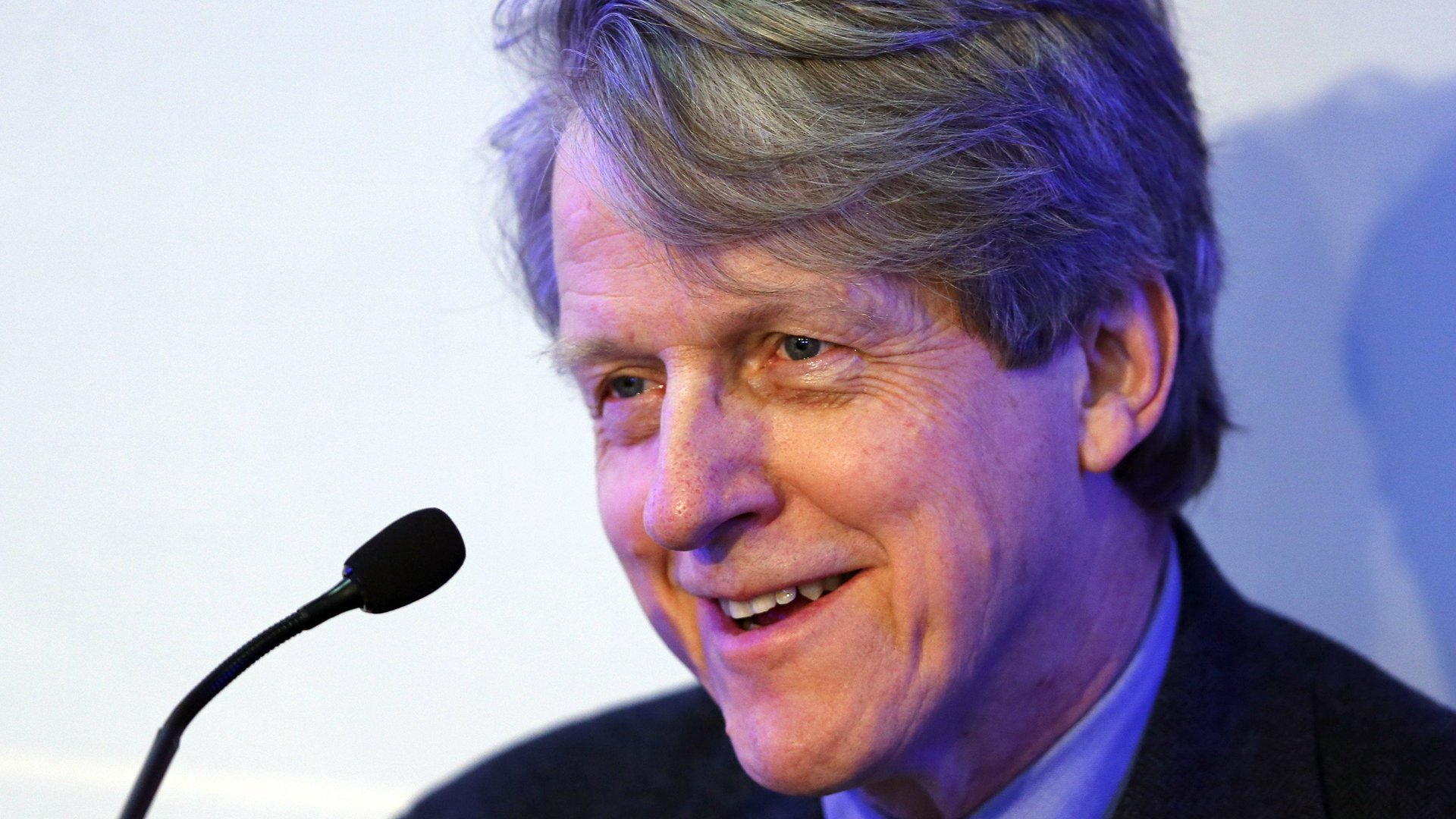Robert Shiller wrote the book on bubbles and still thinks that’s what bitcoin is
When a moderator at the World Economic Forum (WEF) asked Robert Shiller if he’s pro-bitcoin, the Yale economics professor asked if he could be half-pro-bitcoin. The Nobel Prize winner said he admires the technology, but thinks it has gone viral for reasons other than some underlying, fundamental value.


When a moderator at the World Economic Forum (WEF) asked Robert Shiller if he’s pro-bitcoin, the Yale economics professor asked if he could be half-pro-bitcoin. The Nobel Prize winner said he admires the technology, but thinks it has gone viral for reasons other than some underlying, fundamental value.
“It looks selfish to me,” Shiller said during a panel at the WEF in Davos, Switzerland. The cryptoasset that started a global phenomena has fallen about 40% from its peak, but the economist suggested it’s still more like a speculative bubble containing a contagious idea about getting rich.
Shiller, a proponent of behavioral economics, wrote a seminal book on speculative bubbles, Irrational Exuberance. He has argued that people aren’t always rational, a tenant behind some economic thinking, and instead are driven by emotion. Neuroscience and psychology could provide insights into phenomena like bitcoin, he wrote last month in the New York Times (paywall).
Bitcoin is a global mania, but the craze has mainly been driven by individual retail investors. Big-time Wall Street types are getting closer to joining the party, in part thanks to bitcoin futures—which, unlike bitcoin, are readily traded by regulated institutional firms.
Shiller said he was part of the discussions about the launch of these CME Group futures contracts—which allow traders to speculate on an asset’s price at some later date—and initially opposed them. He hinted during the panel discussion in Davos, however, that he had changed his mind because futures might make it easier to bet against bitcoin, potentially smoothing out its price swings. That way, bitcoin can no longer be taken over by “enthusiasts,” he said.
Some of Shiller’s fellow panelists, such as Swedish Central Bank deputy governor Cecilia Skingsley, seemed to think bitcoin is more akin to an asset like digital gold than a useful currency. For now it’s too volatile and expensive to be a convenient means of exchange.
One of bitcoin’s promises is that a central authority doesn’t have the power to debase it, such has happened to paper currencies in places such as Argentina. Skingsley said central banks are in many cases now bound by laws to protect features like price stability and that many of them have a strong record of doing so. “We still have a very competitive product,” she said.
Shiller agreed that traditional fiat money could be improved, but he suggested looking outside the world of crypto to things like Chile’s unidad de femento (PDF), which uses indexing as a basis for price stability.
“There are other ideas,” he said. “We’re over-emphasizing bitcoin.”